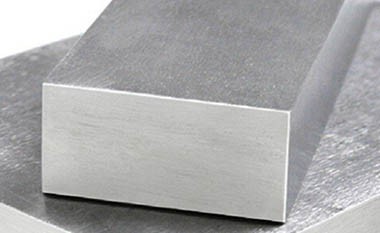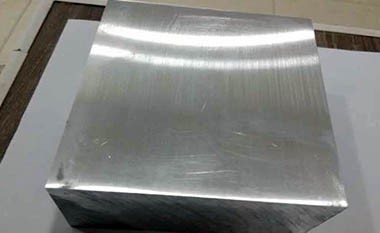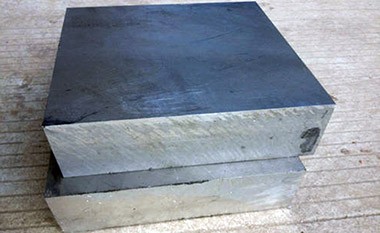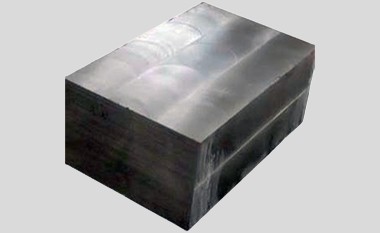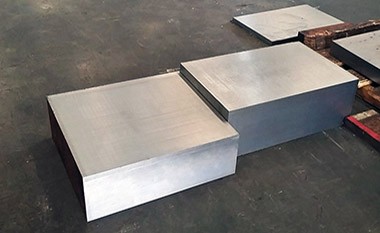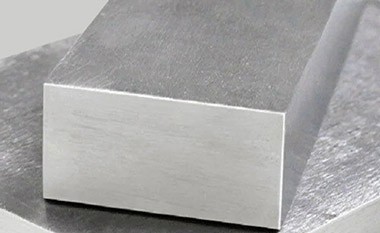Solid rectangular pieces of aluminum used in machining, tooling, and industrial applications due to their high strength and machinability.
aluminum blocks Supplied Forms
-
6061 aluminum block
The 6061 aluminum block is easy to process, has good corrosion resistance, and high toughness. It does not deform after heat treatment, making it widely used in automobile bodies, tractor trailer components, mechanical parts, molds, and more.
-
7075 aluminum block
The 7075 aluminum block belongs to the Al-Zn-Mg-Cu super hard alloy category and is a cold-forged alloy, known for its high strength and hardness.
-
6061 t6 aluminum block
The 6061 T6 aluminum block is a solid piece of 6061 aluminum alloy that has undergone a specific heat treatment process (T6) to enhance its mechanical properties.
-
Forged aluminum block
Forged aluminum blocks are aluminum alloy block materials made through the forging process, featuring excellent mechanical properties and workability.
-
Solid aluminum block
Solid aluminum blocks are produced by cutting pure aluminum sheets or aluminum alloy plates through pressure processing (shearing or sawing) into profiles that are rectangular, square, or circular with uniform thickness.
-
7075 t6 aluminum block
7075 T6 aluminum blocks are high-strength aluminum alloys belonging to the aluminum-zinc-magnesium-copper series. 7075 T6 aluminum blocks can be produced through processes such as hot rolling, extrusion, and cutting.
Aluminum blocks typically refer to aluminum materials that are cast or forged into block shapes. They are high-strength and highly machinable aluminum products widely used in aerospace, automotive, machinery, and mold manufacturing industries.
Common Alloys for Aluminum Blocks
Aluminum blocks come in various specifications and types, including aluminum alloy blocks, ingots, and sheets. Different aluminum alloy compositions and processing methods affect their properties. Alloys like 6061 and 7075 are widely used for their excellent strength and weldability.
- 1000 Series (e.g., 1050, 1060): Known for good plasticity and corrosion resistance, but with relatively low strength.
- 2000 Series (e.g., 2024): High strength and good fatigue resistance, suitable for aerospace and other high-strength applications.
- 6000 Series (e.g., 6061, 6063): Good weldability, formability, and corrosion resistance, widely used in structural components and building materials.
- 7000 Series (e.g., 7075, 7050): High-strength aluminum alloys, commonly used in aerospace, aviation, and other high-strength applications.
- 5000 Series (e.g., 5052, 5083): Excellent corrosion resistance, ideal for marine and shipbuilding applications.
| Alloy Type | Properties | Main Applications |
| 1050 Aluminum Block | Pure aluminum, excellent conductivity and corrosion resistance, good machinability | Electrical equipment, chemical equipment, decorative applications |
| 1060 Aluminum Block | Aluminum content over 99.6%, good conductivity, corrosion resistance, and excellent formability | Electrical equipment, heat exchangers, chemical equipment |
| 2024 Aluminum Block | Copper as the main alloying element, high strength, excellent fatigue resistance, and corrosion resistance | Aerospace, aircraft structural components, high-strength parts |
| 6061 Aluminum Block | Good strength, corrosion resistance, machinability, and weldability | Aerospace, construction, transportation, automotive, machinery, electronics |
| 6063 Aluminum Block | Good extrudability, surface treatment properties, and corrosion resistance | Construction, furniture, decorative components, transportation profiles |
| 7075 Aluminum Block | High strength, corrosion resistance, mainly contains zinc and a small amount of copper | Aerospace structural components, high-strength bearing parts, military equipment |
| 7050 Aluminum Block | High strength, stress corrosion crack resistance, suitable for aerospace | Aircraft structures, fuselage frames, wings, high-strength bearing parts |
| 5052 Aluminum Block | Excellent corrosion resistance, especially in marine environments | Ships, fuel tanks, pressure vessels, chemical industry equipment |
| 5083 Aluminum Block | High strength, excellent corrosion resistance, especially suitable for marine environments | Ships, offshore platforms, pressure vessels, marine-related fields |
Properties of Aluminum Blocks
- High strength and lightweight: Aluminum blocks have a high strength-to-weight ratio, making them an ideal choice for balancing weight and strength.
- Lightweight: Aluminum's density is about 2.7 g/cm³, much lighter than metals like steel, making aluminum blocks easier to handle and process.
- Corrosion resistance: Aluminum naturally forms an oxide layer on its surface, providing excellent corrosion resistance, making it ideal for humid or chemically corrosive environments.
- Good thermal and electrical conductivity: Aluminum has good thermal and electrical conductivity, widely used in electrical and heat exchange equipment.
- Machinability: Aluminum blocks are easy to cut, weld, and form, and can be shaped into complex parts using milling, turning, and stamping processes.
- Recyclability: Aluminum is recyclable, and the energy required to recycle aluminum is much lower than producing new aluminum, aligning with sustainability goals.
Applications of Aluminum Blocks
- Aerospace: Aluminum blocks, especially high-strength alloys like 7075 and 7050, are widely used in aircraft structural components, fuselage frames, wing beams, and engine brackets. Due to aluminum's lightweight properties, they help reduce overall weight and improve fuel efficiency in aircraft.
- Automotive Industry: Aluminum blocks are used in automotive engine parts, frames, wheels, suspension systems, and more. The use of aluminum helps reduce vehicle weight, enhancing fuel efficiency and performance.
- Machinery: Aluminum blocks are widely used in manufacturing machine parts, tools, molds, and structural components. They are used in machine tools and automation equipment to make support frames, bases, and more.
- Mold Manufacturing: Aluminum blocks are widely used in mold manufacturing, especially in injection molding and die-casting molds, due to their excellent thermal conductivity and machinability, ensuring molds are durable and precise.
- Construction and Decoration: Aluminum blocks are also used as structural components in buildings or in aluminum alloy window and door frames, and other decorative parts.
- Electronics: Aluminum blocks are used in manufacturing heat sinks, enclosures, and other parts for electronic products due to their good thermal and electrical conductivity.
Advantages of Aluminum Blocks
- Lightweight: Aluminum alloys are relatively low in density, which significantly reduces the overall weight of the product, making them ideal for applications that require lightness, such as aerospace and automotive industries.
- High strength: Although pure aluminum has low strength, aluminum alloys can achieve very high strength through alloying and heat treatment, meeting the demands of high-load applications.
- Corrosion resistance: Aluminum alloys have excellent corrosion resistance in the atmosphere, making them suitable for many applications in corrosive environments like marine and chemical industries.
- Machinability: Aluminum blocks are easy to machine, allowing for turning, milling, welding, and drilling, facilitating the production of complex parts.
- Environmental friendliness: Aluminum is a recyclable material, and after the product's life cycle ends, it can be efficiently recycled, meeting environmental protection standards.
Processing Methods for Aluminum Blocks
- Casting: Aluminum blocks can be produced through casting processes (such as sand casting and precision casting), where molten aluminum is poured into molds to form block shapes. This method is suitable for mass production, especially for complex shapes.
- Forging: Forged aluminum blocks improve the density and strength of the alloy. Aluminum blocks are shaped by applying heat and pressure, typically used for applications requiring higher strength.
- Machining: Aluminum blocks can be further processed by turning, milling, drilling, and other machining processes to achieve the desired shapes and sizes. This method is essential for producing precision parts.
- Heat treatment: Aluminum blocks can undergo heat treatment (such as annealing, solution treatment, aging treatment) to optimize their mechanical properties, especially to enhance strength and hardness.

